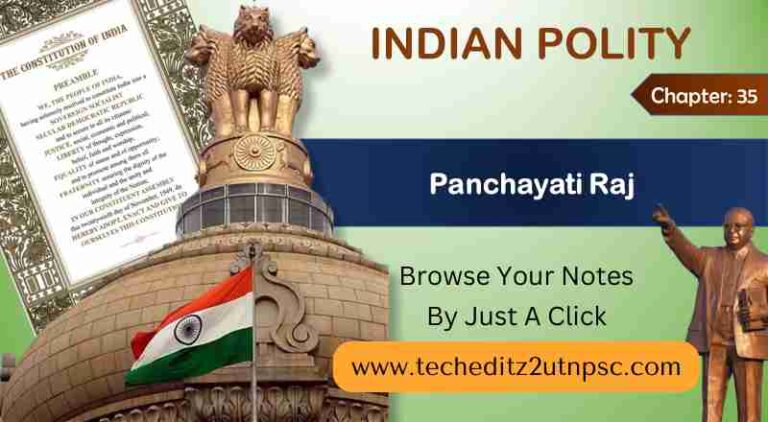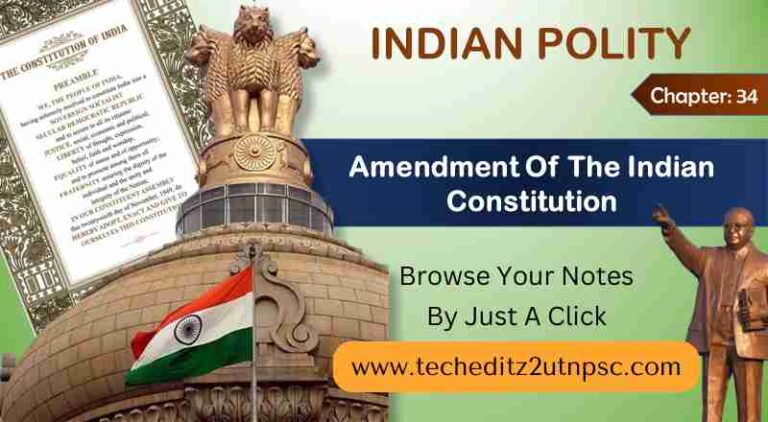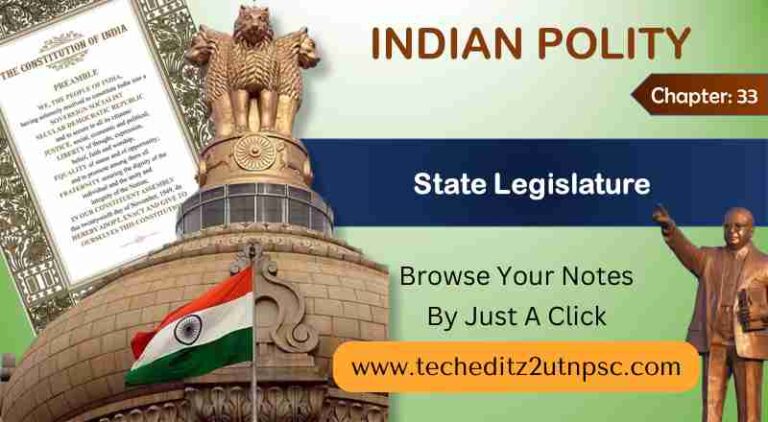support@techeditz2utnpsc.com | 8300-921-521

Joint Public Service Commission
Indian Polity
Chapter 27: Joint Public Service Commission
Joint Public Service Commission:
- The Joint Public Service Commission is created by the parliament through a legislation (law).
- The JPSC is a statutory body.
What Is A Statutory Body?
- The body that is created by an act of Parliament.
Composition:
- There is a chairman for JPSC.
- There are other members for JPSC.
Qualifications:
- The qualifications of Chairman and members are not specified in the Constitution.
- But, at least half the members of the commission must have had 10 years of service under the Government of India or under Government of a State.
Appointment:
- The Chairman and the members of JPSC are appointed by the President of India.
Strength:
ADVERTISEMENT
- The strength of JPSC is decided by the President.
Term:
- The Chairman and members of the JPSC hold office for a term of 6 years or until they attain the age of 62 years whichever is earlier.
Resignation:
- The Chairman and members of JPSC submit the resignation to the President.
Report Of JPSC:
- The JPSC submits the annual report to the Governor of the concerned state.
- The report of JPSC is not submitted to the President).
- The Governor places the report of JPSC before the concerned State Legislature and is discussed.
Removal:
- The Chairman and members of JPSC are removed by the President. (Not by the Governor).
- The President can remove the chairman or any other member of JPSC if
- The Chairman or member is adjusted as an insolvent (or)
- The chairman or member engages during the term of office in any paid employment outside the duties of office (or)
- The chairman or member, in the opinion of the President is unfit to continue in office by reason of infirmity of mind or body.
Removal On The Grounds Of Misbehavior:
What is misbehavior?
- If the Chairman or member of JPSC is concerned or interested in any contract or agreement made by the government of India or government of a state (or)
- If the Chairman or member of SPSC participates in any way in the profit of such contract or agreement or in any benefit there from otherwise than as a member and in common with other members of an incorporated company.
- The President can also remove the Chairman or a member of SPSC for misbehavior.
- In the case of misbehavior the President has to refer the matter to the Supreme Court for an enquiry.
- If the Supreme Court upholds the cause of removal and advises so then the President can remove the Chairman or member of SPSC.
- The advice tendered (given) by the Supreme Court is binding on the President.
- During the course of enquiry the President can suspend the Chairman or member pending the receipt of the report of the Supreme Court.
The Cahirman Of Spsc After Retirement:
ADVERTISEMENT
- The Chairman of SPSC after retirement cannot be reappointed as the Chairman of the same SPSC.
- The Chairman of SPSC after retirement can be appointed as
- The Chairman of UPSC
- A member of UPSC
- The Chairman of other SPSC
- The Chairman of Joint Public Service Commission (JPSC).
A Member Of Spsc After Retirement:
- A member of SPSC after retirement cannot be reappointed as a member in the same SPSC.
- A member of SPSC can be appointed as
- The Chairman of same SPSC.
- The Chairman of other SPSC.
- The Chairman of other Joint Public Service Commission
- The Chairman of other UPSC.
- A member of other SPSC.
- A member of other Joint Public Service Commission.
- A member of UPSC.
Functions Of SPSC:
- The SPSC conducts the examinations for appointments to the services of the state.
- The SPSC is consulted on various matters related to
- All matters relating to the methods of recruitment to civil services and for civil posts.
- The principles to be followed in making appointments to civil services and posts and in making promotions and transfers from one service to the other.
Recommendations:
- The recommendations of SPSC are not binding, they are advisory.
Visit Our YouTube Channel For More Free Videos: Click Here


